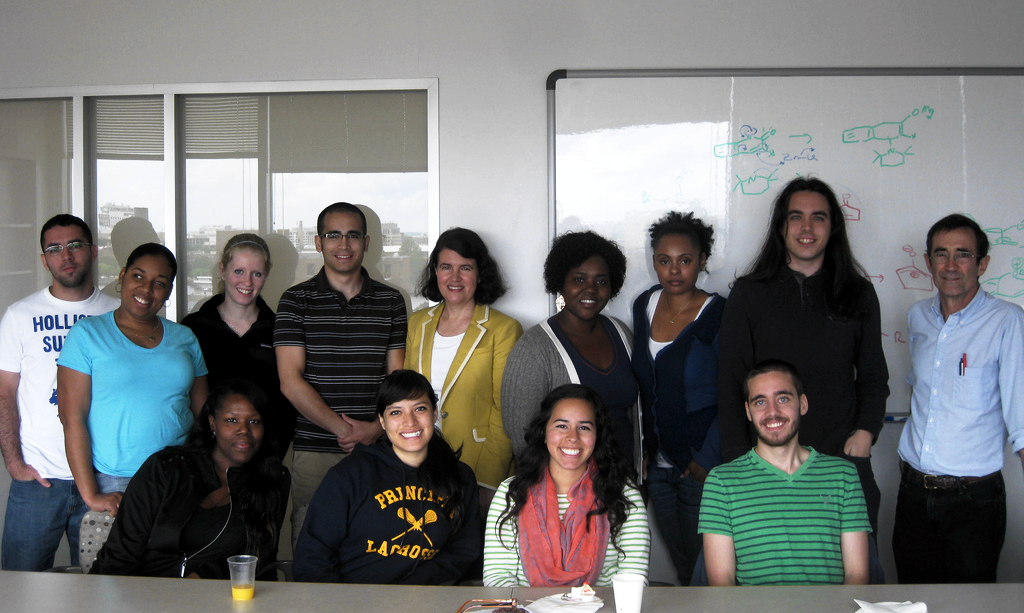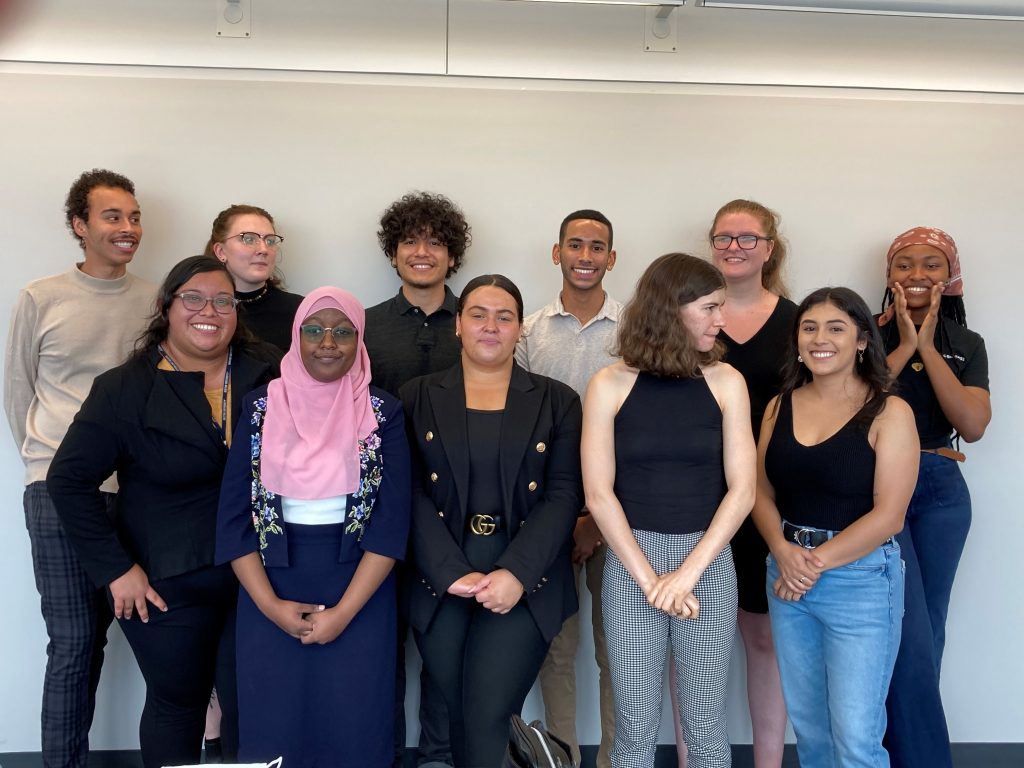Purpose
Take a look at the effect an REU summer at Boston University can have for you: Scientists: The Next Generation
Highlights
Laboratory research at the chemistry/biology interface. Training on state‐of‐the‐art instrumentation. Seminars on latest chemical/biology research. Weekly REU workshops and laboratory group in meetings. Opportunity to present work at a University‐wide research symposium.

Synopsis: The NSF-REU Program
The Research Experiences for Undergraduates (REU) program supports active research participation by undergraduate students in any of the areas of research funded by the National Science Foundation, including the broad area of the chemical sciences. REU projects involve students in meaningful ways in ongoing research programs or in research projects specifically designed for the REU program. The REU program features two mechanisms for support of student research: (1)REU Sites are based on independent proposals to initiate and conduct projects that engage a number of students in research. REU Sites may be based in a single discipline or academic department or may offer interdisciplinary or multi-department research opportunities with a coherent intellectual theme. Proposals with an international dimension are welcome. (2) REU Supplements may be included as a component of proposals for new or renewal NSF grants or cooperative agreements or may be requested for ongoing NSF-funded research projects. Both mechanisms of support are available at Boston University.
Undergraduate student participants in either REU Sites or REU Supplements must be U.S. citizens, U.S. nationals, or permanent residents of the United States.

Program Dates
Ten weeks beginning Monday, June 5 (Arrive June 3) – Friday, August 11, 2023
Program Guidance
Co-Director – Dr. Alexis Courtney: alexislc@bu.edu
Features
- $6,000 Stipend
- Free on-campus housing
- Travel reimbursement
Requirements
- Must be a U.S. Citizen or permanent resident
- Current freshman, sophomore, or junior at four-year colleges without graduate programs in chemistry, as well as students currently enrolled at community colleges
- Women and underrepresented minorities are strongly encouraged to apply